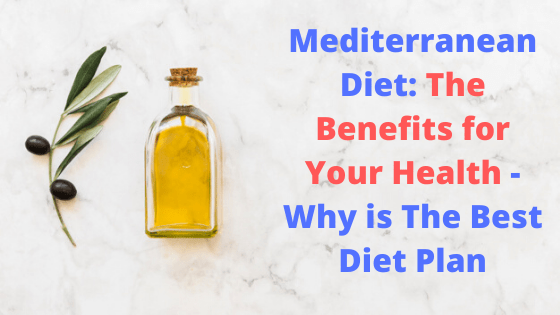
The Mediterranean diet blends the basics of healthy eating with the traditional flavors and cooking methods of the Mediterranean.
Why the Mediterranean diet is so effective and healthy
Interest in the Mediterranean diet began in the 1960s with the observation that coronary heart disease caused fewer deaths in Mediterranean countries, such as Greece and Italy than in the U.S. and northern Europe.
Many studies found that the Mediterranean diet is associated with reduced risk factors for cardiovascular disease.
The Mediterranean diet is one of the healthy eating plans recommended by the Dietary Guidelines for Americans to promote health and prevent chronic disease.
It is also recognized by the World Health Organization as a healthy and sustainable dietary pattern and as an intangible cultural asset by the United National Educational, Scientific and Cultural Organization.
Mediterranean diet and Components
Mediterranean diet is typically high in vegetables, fruits, whole grains, beans, nut and seeds, and olive oil.
The main components of the Mediterranean diet include:
Daily consumption of vegetables, fruits, whole grains, and healthy fats
Weekly intake of fish, poultry, beans, and eggs
Moderate portions of dairy products
Limited intake of red meat
Other important elements of the Mediterranean diet are sharing meals with family and friends, enjoying a glass of red wine and being physically active.
Meals are built around plant-based foods. Moderate amounts of dairy, poultry, and eggs are also central to the Mediterranean Diet, as is seafood. In contrast, red meat is eaten only occasionally.
Healthy fats
Healthy fats are a mainstay of the Mediterranean diet. They’re eaten instead of less healthy fats, such as saturated and trans fats, which contribute to heart disease.
Olive oil is very healthy! and is the primary source of added fat in the Mediterranean diet. Olive oil provides monounsaturated fat, which has been found to lower total cholesterol and low-density lipoprotein (LDL or “bad”) cholesterol levels. Nuts and seeds also contain monounsaturated fat.
Fish are also important in the Mediterranean diet. Fatty fish — such as mackerel, herring, sardines, albacore tuna, — are rich in omega-3 fatty acids, a type of polyunsaturated fat that may reduce inflammation in the body. Omega-3 fatty acids also help decrease triglycerides, reduce blood clotting, and decrease the risk of stroke and heart failure
The Famous Mediterranean Way
Eat more fruits and vegetables.
Whole grains. Switch to whole-grain bread, cereal and pasta.
Use healthy fats. Try olive oil as a replacement for butter when cooking. Instead of putting butter or margarine on bread, try dipping it in flavored olive oil.
Eat more seafood. Eat fish twice a week. Fresh tuna, salmon, trout, mackerel, and herring are healthy choices. Grilled fish tastes good and requires little cleanup. Avoid deep-fried fish.
Reduce red meat. Substitute fish, poultry or beans for meat. If you eat meat, make sure it’s lean and keep portions small.
Dairy. Eat low-fat Greek or plain yogurt and small amounts of a variety of cheeses.
Spices. Herbs and spices boost flavor and lessen the need for salt.
The Mediterranean diet is a delicious and healthy way to eat. Many people who switch to this style of eating say they Love It!
P.S.
The Secret for Women
How One Woman Discovered the Female Fat-Loss Code Missed by Modern Medicine And Lost 84lbs Using a Simple 2-Step Ritual That 100% Guarantees Shocking Daily Weight Loss. Weight Loss for Women: The Best Solution http://www.bestprofitsonline.com/myblog/0m6o